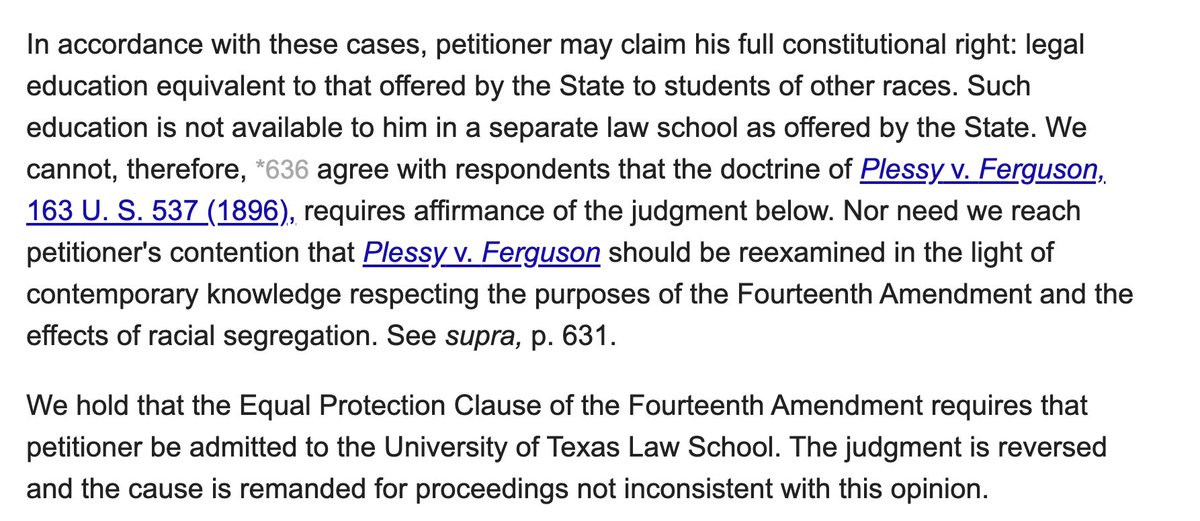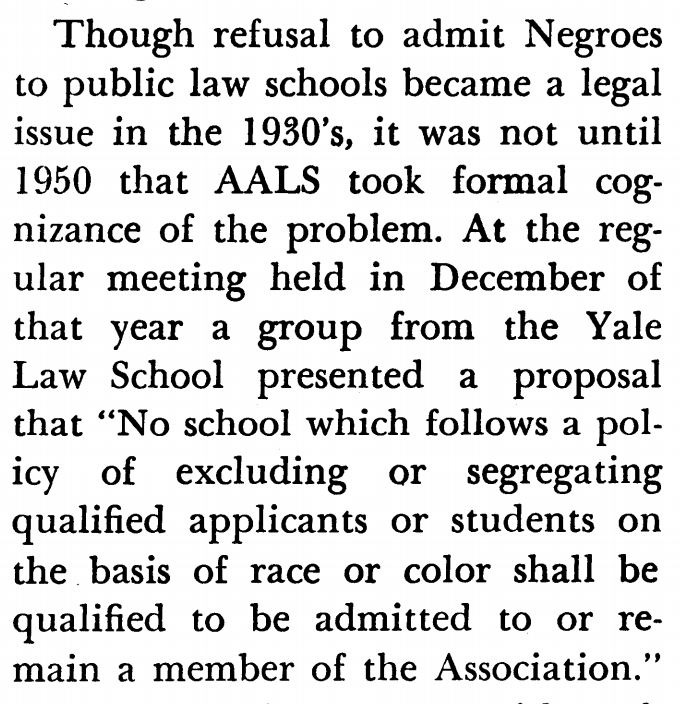
This is the absolute least important aspect of the Barrett nomination (don't say I didn't warn you), but for gunner law students, a 6-3 Court means an increasing disparity between the competitiveness of SCOTUS clerk hiring on the left and the right.
Thread below.
Thread below.
It's not exactly news that Supreme Court law clerk hiring fits certain ideological patterns. The courtesy practice is for applicants to apply to every Justice, but as a practical matter, Justices tend to hire law clerks that roughly share their views. greenbag.org/v13n1/v13n1_ne…
There are exceptions to this, of course. Scalia famously hired a "counter-clerk," at least many Terms. And some Justices hire from a wider range of views than others. But that's a general trend. repository.law.umich.edu/cgi/viewconten…
Given that, a 6-3 Court has interesting implications for law clerk hiring.
Start with the applicant pool. I would guess that the % of applicants who fit the traditional criteria for hiring is probably something like 80% left-of-center vs 20% right-of-center.
Start with the applicant pool. I would guess that the % of applicants who fit the traditional criteria for hiring is probably something like 80% left-of-center vs 20% right-of-center.
As a result, on a Court evenly divided between liberal and conservative Justices, it's already more likely for conservatives to get a SCOTUS clerkship than for liberals to get a SCOTUS clerkship.
But a 6-3 court now means twice the spots open In conservative chambers.
But a 6-3 court now means twice the spots open In conservative chambers.
It will be interesting to see how that plays out in terms of clerk hiring.
At one level, it makes getting a clerkship with a liberal Justice that much more competitive. To oversimplify, 80% of the applicants are competing for 33% of the slots instead of 44% of the slots.
At one level, it makes getting a clerkship with a liberal Justice that much more competitive. To oversimplify, 80% of the applicants are competing for 33% of the slots instead of 44% of the slots.
One response may be for conservative Justices to hire more broadly. For example, there are not-particularly-ideological clerk applicants who start in chambers of a conservative feeder circuit judge who are then recommended to a conservative Justice. That may happen more.
Alternatively, you might see a change in perceptions about the credential of a Supreme Court clerkship given the smaller number of liberal-Justice spots available.
Anyway, as I said, it's the absolute least important part of the Barrett nomination. (I warned you!)
Anyway, as I said, it's the absolute least important part of the Barrett nomination. (I warned you!)
• • •
Missing some Tweet in this thread? You can try to
force a refresh










